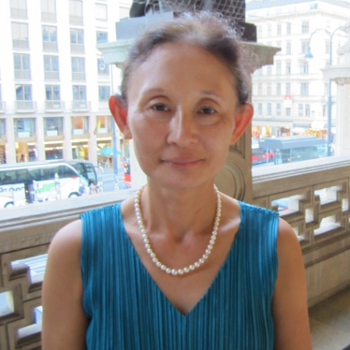Carl Maria von Weber’s Euryanthe, while less well known than Der Freischütz, is a forward-looking work that dispenses with the spoken dialogue that prevailed in earlier German operas. His dynamic overture, use of leitmotifs and chromaticism saw their fruition in Wagner’s operas several decades later. Euryanthe has many challenging and showstopping nmubers, and an Act 2 ensemble that has the beauty and grandeur of Verdi. The chorus plays a prominent role, fully realized in Wagner’s Lohengrin and Tannhäuser. Its infrequent performance is attributed to a weak libretto and a convoluted plot of love triangles, secrets and deceptions. Christof Loy’s new production for Theater an der Wien was blessed with good singers, and an orchestra conducted by Constantin Trinks with meticulous care and sensitivity, succeeding in making this early German Romantic opera come alive for a contemporary audience.
Loy, who professes on his website his interest in “movement within a certain temporal frame” and prefers to distance himself “from decoration and needless things on stage” here works with an austere white room with a tall ceiling and skylight windows. This opens out to a windowed corridor. During the overture, a backstory of the four main characters – Euryanthe, her fiancé, Adolar, Eglantine, who pines for Adolar, and Lysiart, who is in love with Euryanthe – enacted as a psychological drama. Adolar is on the bed, looking tormented; Euryanthe sits on the bed with her back towards him and walks off through a door. Lysiart slumps over on the opposite side of stage. A piano is stage right, the only prop besides the bed. Elgantine, in a red dress, hovers at the back. Every character seems to fight an emotional battle; full of angst, they hurtle their inner demons towards one another. A non-singing character of the Duchess of Burgundy appears as the King’s consort; other than carrying in a bouquet of flowers, her role seems superfluous. She is a serene presence at first but gets sucked into the emotional drama of the principals by the end.
All the action – the French palace, Euryanthe’s castle, the tomb, a rocky gorge – takes place in the white room. The physical surroundings are irrelevant to Loy, who is intent on exploring the characters' psychological dimensions. Without knowledge of the plot, one could easily get lost: we do not see the serpent that threatens Euryanthe and Adolar in Act 3; we do not know that a cursed ring is absconded by Eglantine from Adolar’s sister’s tomb. There is striking lighting work by Reinhard Traub that gives us a clear sense of night and day, good and evil. Judith Weihrauch's costumes are stylish and elegant, but the performance ends up being a little more than a well-directed, visually arresting concert performance, albeit exploring the depth of human emotions.
The principals all responded well to Loy’s demands, most notably British baritone Andrew Foster-Williams, who sang Lysiart’s desperate plea to Euryanthe completely nude. His powerful, eloquent voice captured attention from the very first moment, and he was most adept at expressing the character's emotional journey, from desperate pursuer to co-conspirator and, finally, remorseful avenger for Euryanthe and Adolar, when he kills Eglantine. German mezzo Theresa Kronthaler was an ideal foil to Foster-Williams’ tortured villain. She embodied the manipulative but ultimately fragile character, her rich and strong voice scaling the range of Weber’s music. Her voice at times became one with the orchestra, rising and falling in synch with the woodwinds, a rare pleasure.
The two high voices, American soprano Jacquelyn Wagner as Euryanthe and American tenor Norman Reinhardt, both took time to warm up during Act 1 but then both sang with splendid beauty and musicality, most befitting of characters who embody innocence and naiveté. Reinhardt’s voice possesses clarity and heft, and he was most effective in his duet with Euryanthe as well as in ensemble scenes, his voice ringing out above the rest of the singers and orchestra. Austrian bass Stefan Cerny, as the king, sang with a booming voice of authority that lent gravitas to the role but even his character was not spared from doubts and confusion in Loy’s production. Wagner is a lyric soprano who can master a seamless transition from the middle to high range, with her smooth, luscious voice floating up to convey Euryanthe’s innocence. Her Act 3 aria as she longs for death, having been abandoned by Adolar, was a highlight of the evening as she communicated every nuance of the character’s despair with expert control of color and dynamics, a tour de force. The men and women of the Arnold Schoenberg Choir made notable contributions to the evening’s musical success with splendid singing.




